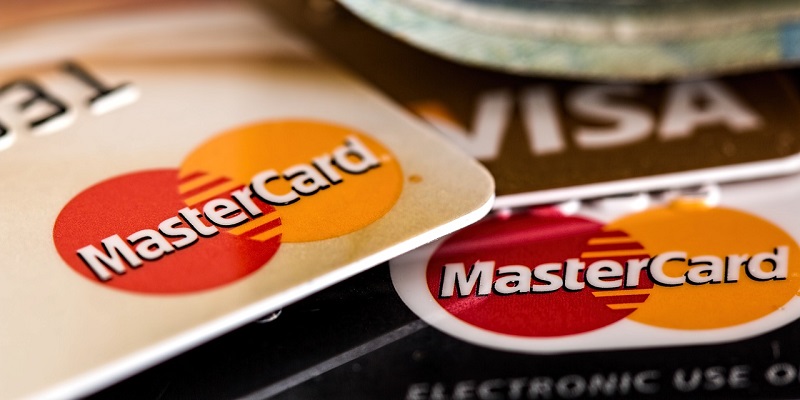In response to the growing demand for participation in commerce across multiple blockchains, Mastercard has unveiled a groundbreaking solution that allows for the seamless integration of pilot Central Bank Digital Currencies (CBDCs) and Non-Fungible Tokens (NFTs). Leveraging its advanced control measures and the power of blockchain technology, Mastercard aims to revolutionize the digital economy by enabling secure, efficient, and fraud-resistant transactions.
Control Measures for Pilot CBDC
Mastercard’s solution includes robust controls that ensure the pilot CBDC can only be held, used, and redeemed by authorized parties. By implementing stringent security measures, Mastercard ensures the legitimacy of transactions and safeguards against potential fraud or misuse. These controls are pivotal in instilling confidence in the use of pilot CBDCs and establishing a trusted ecosystem for digital currency transactions.
Demonstration of Purchasing NFT with Pilot CBDC
To showcase the capabilities of their solution, Mastercard conducted a live demonstration that illustrated how a holder of a pilot CBDC can purchase an NFT listed on the Ethereum public blockchain. Through this demonstration, Mastercard exemplified the seamless integration between traditional financial systems and decentralized blockchain networks, opening up endless possibilities for the exchange of digital assets.
Minting Wrapped Pilot CBDC Tokens
During the demonstration, Mastercard implemented a process that “locked” the required amount of the pilot CBDC on the Reserve Bank of Australia’s (RBA) pilot CBDC platform. Subsequently, an equivalent amount of wrapped pilot CBDC tokens was minted on the Ethereum blockchain. The success of this process underscored the platform’s ability to implement controls even on public blockchains, ensuring the security and integrity of digital transactions.
Opportunities for Collaboration in the Digital Currency Space
As the digital economy continues to mature, there is a growing demand from consumers to participate in commerce across multiple blockchains, including public blockchains like Ethereum. Mastercard recognizes this trend and believes that the integration of various blockchain networks can unlock new opportunities for collaboration between public and private networks in the digital currency space. This collaboration can drive genuine impact and foster innovation within the industry.
The Role of Mastercard’s Multi-Token Network
The pilot leveraged the capabilities of Mastercard’s Multi-Token Network, introduced in June 2023 as a set of foundational capabilities designed to enable more efficient payment and commerce applications using blockchain technology. By leveraging this network, Mastercard showcased the potential of blockchain technology to streamline payment processes, enhance security, and improve overall transaction efficiency.
Expanding the Use of Blockchain Technology
Mastercard’s Multi-Token Network plays a pivotal role in the company’s wider strategy to expand the use of blockchain technology across various payment use cases. With the network currently in beta, Mastercard aims to further refine its capabilities and expand its utility in facilitating secure and efficient transactions. By harnessing the power of blockchain technology, Mastercard endeavors to transform the digital payments landscape.
Enabling Consumer Participation with Trusted Digital Currencies
Mastercard’s solution, enabled by its trusted network, allows for the easy movement of digital currencies on demand. By offering a seamless and secure integration of digital currencies into its network, Mastercard opens the doors for more consumers to actively participate in crypto ecosystems using reputable and reliable forms of money. This advancement not only fosters financial inclusion but also enhances the accessibility and adoption of digital currencies.
Linking Digital Currencies and NFTs for Enhanced Commerce
In collaboration with Mastercard, the integration of digital currencies and NFTs has unlocked exciting possibilities for commerce. This groundbreaking use case paves the way for the elimination of fraud and theft, ensuring the authenticity of transactions. Additionally, this integration brings an end to the loss of documentation and records, streamlining the process of buying and selling NFTs. The seamless integration of digital currencies and NFTs, created through Mastercard’s solution, opens up new avenues for commerce and unleashes the full potential of the digital economy.
Mastercard’s solution for integrating pilot CBDCs and NFTs on the Ethereum blockchain marks a significant milestone in the evolution of the digital economy. By providing robust control measures, leveraging blockchain technology, and promoting collaboration between public and private networks, Mastercard is driving genuine impact in the digital currency space. This groundbreaking advancement not only fuels consumer choice but also facilitates secure, efficient, and trusted transactions in the ever-evolving digital landscape. As we embrace the future of the digital economy, Mastercard continues to pioneer innovation by harnessing the power of blockchain technology.

